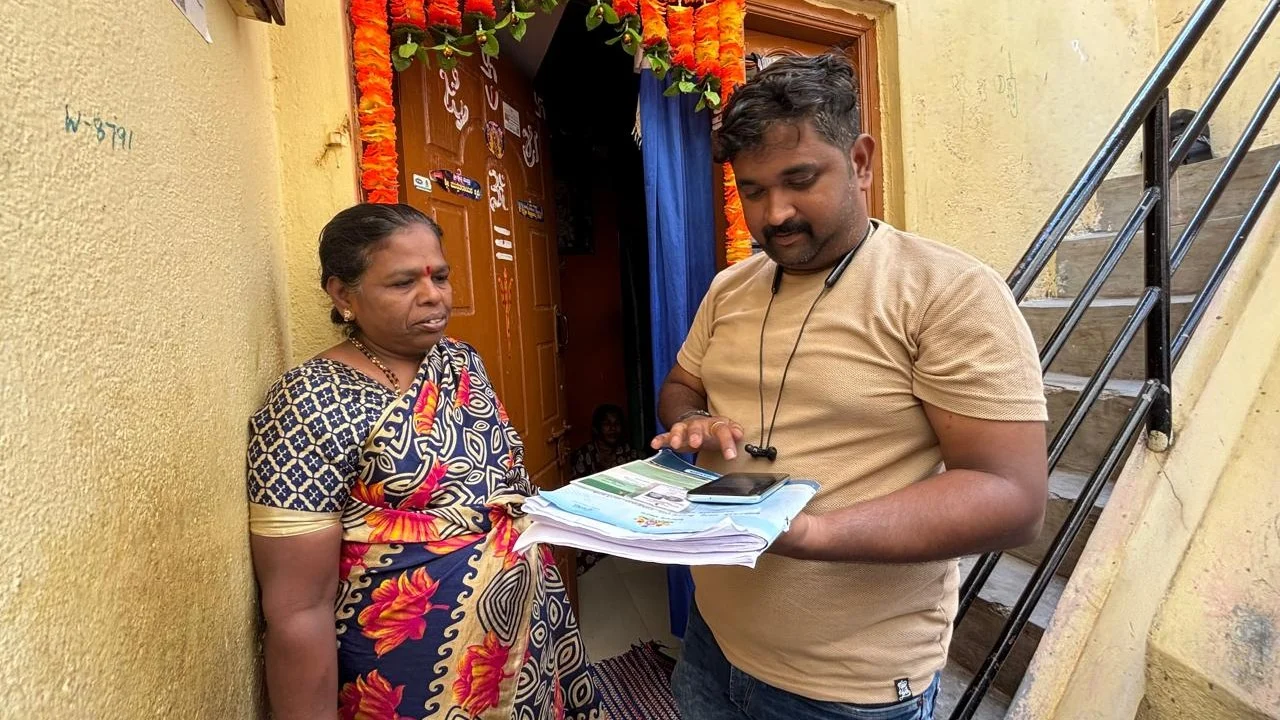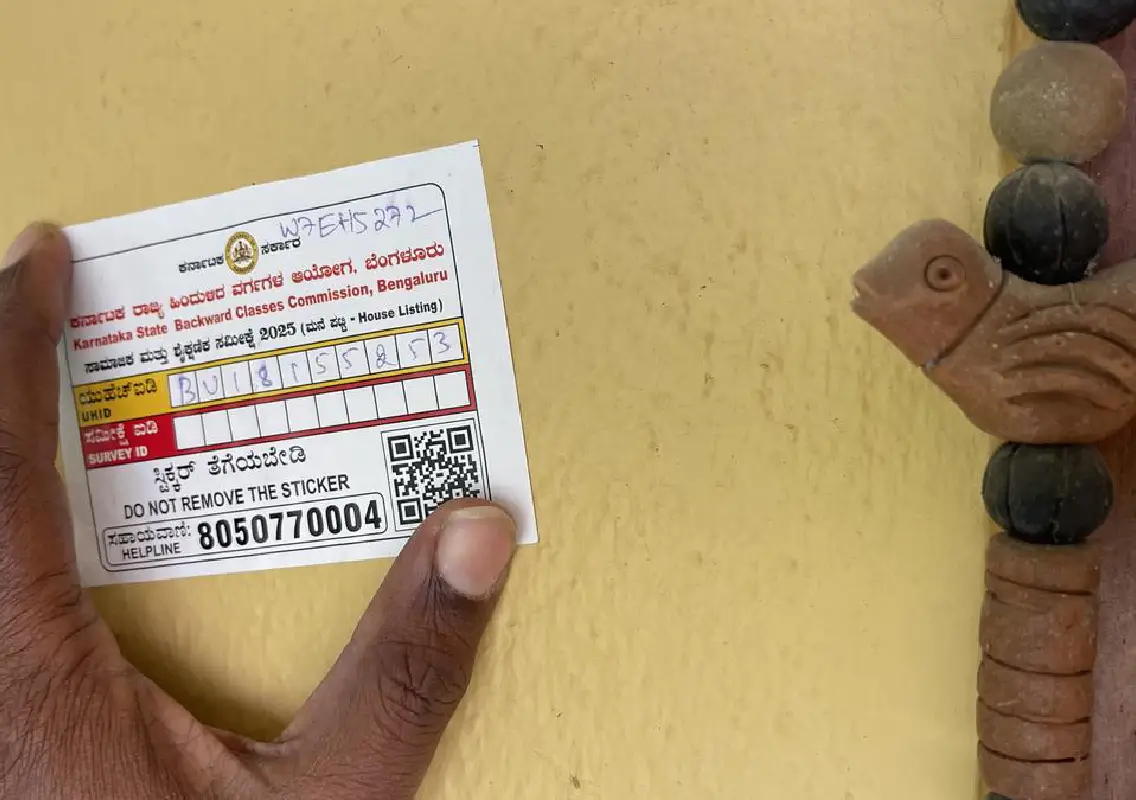The Social Educational Survey conducted across Karnataka has been extended once again, with authorities announcing that data collection will now continue until October 31. Initially slated to conclude earlier this month, the extension aims to ensure comprehensive coverage of all households in both urban and rural areas, addressing gaps identified during fieldwork. The survey, which forms the basis for planning and implementation of government welfare schemes, has become a critical tool for policymakers to understand socio-economic conditions, educational attainment, and living standards across the state.
Officials have also emphasized the importance of training and supporting enumerators during the extended survey period. Refresher sessions on data collection techniques, digital tool usage, and ethical handling of sensitive information have been organized to enhance accuracy and efficiency. This ongoing capacity-building ensures that field staff are well-prepared to navigate challenges, maintain consistency in responses, and deliver high-quality data for analysis.
In addition, the extension provides an opportunity for authorities to cross-verify and validate previously collected information. Supervisors are conducting follow-up visits to households where discrepancies or incomplete entries were noted, ensuring that the final dataset is reliable and comprehensive. This meticulous approach will strengthen the credibility of the Social Educational Survey and ensure that policy decisions based on its findings are accurate and effective.
Officials stated that the extension is necessary to allow enumerators to reach remote areas, where logistical challenges and accessibility issues have delayed data collection. Households in hilly terrains, tribal regions, and border taluks have been particularly difficult to cover within the initial timeframe. By prolonging the survey period, authorities hope to ensure that every demographic is accurately represented in the final report, minimizing data discrepancies and ensuring equitable distribution of benefits.
Importance of the Survey and Its Scope
The Social Educational Survey is designed to collect detailed information on household composition, literacy levels, school enrollment, employment, income, and access to basic amenities. Data gathered forms the foundation for schemes targeting education, healthcare, nutrition, and social welfare. By extending the survey, the government seeks to capture the latest socio-economic trends and ensure that programs are aligned with the actual needs of citizens.
Enumerators, often recruited locally, have been trained to handle sensitive information while maintaining accuracy and confidentiality. They use standardized questionnaires and electronic devices to record data, which is later verified by supervisors to ensure reliability. Despite these measures, officials noted that unforeseen factors such as extreme weather, public holidays, and local events have slowed progress, necessitating the deadline extension.
The state government emphasized that participation in the survey is mandatory, and residents are encouraged to provide accurate information. Officials reassured citizens that personal details will be kept confidential and will only be used for policy planning purposes. Public awareness campaigns through local media and community meetings have been intensified to ensure maximum cooperation.
Challenges Faced by Enumerators
Field staff have reported multiple challenges during data collection, including resistance from households wary of sharing personal information, difficulties in locating residents who work outside the home, and language barriers in multi-lingual regions. Additional training sessions and support systems have been provided to overcome these challenges. Authorities believe that the extended timeline will allow enumerators to navigate these obstacles effectively, ensuring data completeness.
Local administration officials are coordinating with schools, panchayats, and urban municipal bodies to facilitate access to households and maintain records of survey completion. This multi-tiered approach ensures that coverage is thorough and systematic, reducing the likelihood of missing households or duplicated entries. Supervisors conduct periodic checks to verify the accuracy of collected data and provide real-time guidance to enumerators.
The survey extension has also been welcomed by educational and social researchers who rely on timely and comprehensive data for analysis. Accurate and complete data sets enable them to identify gaps in literacy, school infrastructure, and social indicators, thereby informing policy recommendations and academic studies. Researchers note that partial or incomplete surveys could lead to flawed conclusions and ineffective program design.
Civil society groups have expressed support for the government’s decision to extend the survey period, emphasizing the importance of including marginalized and underserved communities. They have urged local authorities to prioritize remote areas, ensure enumerator safety, and maintain transparency in data handling. Community participation is being encouraged to foster trust and facilitate smoother data collection.

As the survey continues, authorities are also digitizing data for quicker processing and analysis. Electronic data collection reduces manual errors, accelerates reporting, and enables real-time monitoring of fieldwork progress. The government aims to release preliminary findings shortly after the completion of the extended survey period, ensuring that policy decisions are based on the most up-to-date information.
In conclusion, the extension of the Social Educational Survey till October 31 reflects the Karnataka government’s commitment to inclusive and data-driven governance. By allowing additional time for comprehensive coverage, authorities aim to ensure that all households, especially those in remote or hard-to-reach areas, are included. The findings of this survey will play a pivotal role in shaping social, educational, and welfare policies, reinforcing the state’s focus on equitable development and informed decision-making.

The extension of the Social Educational Survey has been strategically planned to allow enumerators to focus on areas where previous attempts faced difficulties. In several districts, particularly in the northern and western regions of Karnataka, enumerators encountered logistical obstacles due to rough terrain and dispersed villages. By extending the survey period, authorities aim to mitigate these challenges, ensuring that households in remote locations are accurately documented. This approach reflects a commitment to equitable representation and avoids the risk of excluding vulnerable populations from critical welfare programs.
Local administration officials have intensified efforts to monitor enumerator progress, deploying supervisors to conduct field audits and verify entries. These measures aim to maintain data quality and prevent errors that could compromise the accuracy of the survey. In addition, enumerators are being encouraged to liaise with local community leaders to facilitate trust and cooperation among residents. The collaborative approach between government officials, community leaders, and field staff ensures that the survey process remains efficient, reliable, and transparent.
Education departments have highlighted that the survey’s extension provides a critical opportunity to assess gaps in school enrollment and literacy rates across diverse regions. Preliminary reports indicate disparities in enrollment between urban and rural areas, with rural students facing challenges such as long travel distances, lack of infrastructure, and socio-economic constraints. Accurate data from the extended survey will allow policymakers to design targeted interventions, including scholarship programs, school transportation facilities, and infrastructure improvements tailored to local needs.
Another key focus of the survey is assessing the status of educational infrastructure, including classroom availability, sanitation facilities, and access to digital learning tools. With the rapid expansion of online and hybrid learning models, understanding regional disparities in access to technology is essential. The extended timeline ensures that survey teams can collect detailed information, particularly in villages where electricity supply and internet connectivity are inconsistent, helping authorities plan digital literacy initiatives effectively.
Health and nutrition indicators are also being closely monitored through the extended survey. Data on child malnutrition, vaccination coverage, and maternal health practices are essential for the implementation of state and central government health schemes. By covering previously unrepresented areas, the survey will provide a comprehensive picture of public health challenges, enabling targeted interventions such as immunization drives, nutritional supplementation programs, and health awareness campaigns in underserved communities.
Socio-economic data collection, including household income levels, employment status, and access to government welfare programs, is another crucial component of the extended survey. Accurate income data helps authorities assess the effectiveness of poverty alleviation initiatives and identify households that are not benefiting from existing schemes. The extension allows enumerators to revisit households where members may have been unavailable previously, ensuring that data reflects the actual socio-economic conditions across the state.
Community feedback and perception data are also being captured during the survey, providing insights into public satisfaction with government services, educational institutions, and healthcare facilities. This qualitative information complements quantitative data, helping policymakers understand the lived experiences of residents. The extension period enables enumerators to conduct more in-depth interviews and gather comprehensive feedback, which is critical for refining policy decisions and improving service delivery.
The survey has mobilized a significant workforce, including temporary enumerators, supervisors, and technical staff, contributing to local employment opportunities. With the extension, these personnel remain engaged longer, enhancing their skills in data collection, digital tools usage, and field coordination. The experience gained by this workforce also strengthens the state’s capacity to conduct large-scale surveys in the future, ensuring that Karnataka maintains robust mechanisms for social and educational data gathering.
Civil society organizations have played an active role in supporting the extended survey period, assisting in community awareness, mobilization, and verification of data. Their involvement helps bridge the gap between the government and residents, fostering trust and cooperation. Community participation ensures that households understand the purpose of the survey and the confidentiality of information, increasing the likelihood of accurate and complete data collection.
Finally, the extension of the Social Educational Survey till October 31 underscores Karnataka’s commitment to data-driven governance and inclusive development. By allowing additional time for comprehensive coverage, authorities aim to capture the realities of all households, particularly those in remote or marginalized regions. The findings from this survey will directly influence policy planning, resource allocation, and program implementation, ensuring that government initiatives are informed by accurate data and address the genuine needs of the population across Karnataka.
Follow: Karnataka Government
Also read: Home | Channel 6 Network – Latest News, Breaking Updates: Politics, Business, Tech & More

